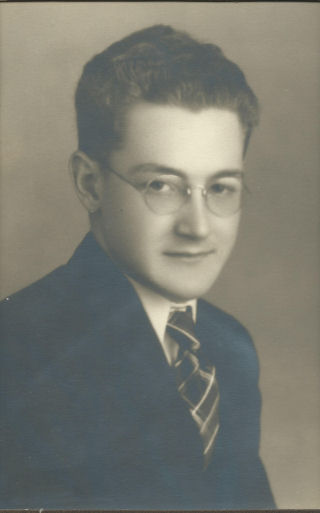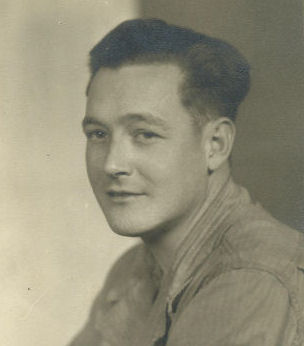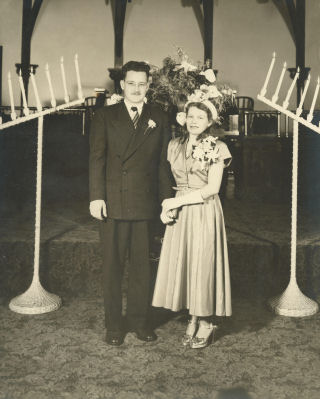
My father, Victor H. Napier, was born in Portland Oregon on May 7, 1920.
Imagine the world he was seeing when graduating from high school in 1938.
As he looked to the east, my father would have seen the Dust Bowl, and tens of thousands streaming towards California, immortalized in the John Steinbeck book, the Grapes of Wrath. He would have seen Washington DC, and debates about Socialism, market economies, the beginnings of idealistic thinking that led to what we now call progressivism and a new economic concept called the “welfare state”.
Farther east, across the Atlantic he would have seen utopian progressive ideals turn into fascist nightmares.
Newspapers and magazines told of Mussolini’s Fascist Party and its war against Ethiopia, a preview of the unspeakable brutality of World War II.
Hitler’s Nazi Party was building a massive military force and using minorities as scapegoats to justify social repression.
Stalin’s socialist paradise was hosting the slow death of millions in Gulag labor camps and by starvation in Ukraine.
To the west across the Pacific, Imperial Japan crushed colonies of England, Holland and France, and chased their navies out of the Western Pacific. The Asian Co-Prosperity Sphere was a cynical title for the wholesale theft of natural resources vital to the industrialization of Japan.
That was what my father saw from Portland after graduating from high school.
The world was on a precipice, politically, economically and militarily. The end of free market capitalism, liberal democracy and the United States itself all were distinct possibilities.
Following the Japanese attack on Pearl Harbor, my father, like just about every other young man in America, said goodbye to friends and family, signed up for the draft and looked forward to fighting on the front lines for the ideals of liberal democracy.
But he didn’t pass the physical. It was his eyes.
After saying goodbye to everyone, he could not face returning to them. The only service branch who would take him was the Merchant Marine. He would spend the war sailing on cargo ships.
There was an old book in our household, published in the 1930’s, titled “How to Improve Your Eyesight”. It was full of useless tips for getting 20/20 vision, like straining to see things clearly at long distances and exercising the eye muscles that bring things into focus.
That book is a symbol of how my father’s life did not turn out the way he wished.
He was disappointed that he stood on the sidelines while others helped change the world. He did not live long enough to find out that he was not on the sidelines at all.
He never told me much about his years during the war on Liberty ships. But after he died in 1986, I found dozens of pictures he had taken during and after the war. It was the grand adventure of his life, and he knew it.
He crossed the Atlantic dozens of times from New York to England, crewing on ships transporting everything needed to save England form invasion and to cross the Channel on June 6, 1944 and push the Nazis from France.
It wasn’t glamorous work, but it carried its own unique brand of horror.
Throughout the war, more than 1500 of those ships and crews never got any farther than the bottom of the Atlantic. German submarines decimated them.
My father did not live long enough to see the day that documents detailing the losses of the War of the Atlantic became declassified.
The young men crewing Liberty ships during World War II had the highest death rate of any service, a third greater than even the Marine Crops. A Merchant Seaman had a 4% chance of dying, usually of hypothermia or drowning in the dark of night, in the cold black waters of the North Atlantic.
But my father survived.

My father was finally accepted into the Army at the end of the war. With the fighting over, physical standards were lowered and he became part of the Occupation Forces in Germany in 1946.
He met my mother, a German farm girl whose father was Ukrainian.
Her family became stuck in Ukraine for several years when they visited relatives. This was in the late 30’s when Stalin was starving the wheat rich Ukraine. My mother remembered Russian troops confiscating the wheat her father ground at a windmill he operated. She also remembered suffering from rickets, a disease of malnutrition while she was a teenager.
She and her family made it back to Germany just in time for World War II. Half of her family of eight died of bombs and bullets during the war.

My parents were married in Portland in 1946. The Army sent them back to Germany for a few years, then to Richland Washington where my father was assigned to an ordnance division. Ordinance means bombs and ammunition, but he received training in electronics, radar and early computers.
Next, Redstone Arsenal in Huntsville Alabama where he entered the world of radar guided anti-aircraft missiles, the Nike-Ajax guided missile project. Nike missile batteries protected many large cities from Soviet bombers during the Cold War.
He did not know it, but he was destined to spend the next fifteen years defending the United States against nuclear attack.
Back to Germany on a front line anti-aircraft unit, facing the Russians for a few years, then to San Francisco working on the system protecting that city from nuclear annihilation.
He spent a year in Thule Greenland staffing part of the Distant Early Warning System — the DEW Line — operating powerful radar monitoring the skies over the North Pole for incoming Soviet nuclear weapons, and the missiles intended to shoot them down.
Finally back to Huntsville.
It was there that my father took me to where he worked, twenty years before Oprah Winfrey popularized the idea. He was what we would today call a project manager for the Nike-Hercules missile defense system.
First, out to the acquisition radar, a huge white fabric covered bubble protecting a large rotating radar antenna. He took me inside the bubble, explaining that the radar actually used microwaves, not radio waves, and pointed out the tiny spotless white cone where the huge antenna focused the microwaves.
Then we went inside olive drab vans with rows of radar screens on either side with only a narrow aisle of swivel chairs between them. Here the signals from the acquisition radar were received and were sent to two sets of targeting radar — one to track the targets, and one to track the missiles sent to shoot them down.
Next he showed me the tracking radar array. These were much smaller devises that looked like huge rotating footlockers designed to discern the exact position of both incoming bombers and the Nike missiles sent to intercept them.
He explained that a mainframe computer in the van calculated the future position of the target and sent instructions to the rising missile ensuring they would both be at the same place at the same time.
Impressive for 1965.
So impressive that the Soviet Union abandoned its long range bomber forces and focused on ICBMs.
My father spent thirty years in service to his country. Most of the time he performed mundane roles on cargo ships or electronics and early mainframe computers. He never stormed any beaches or parachuted behind enemy lines. But some of the men he worked with did, and he talked about their exploits wistfully. He may have had a nagging sense of guilt that he didn’t really do his part in the war.
Maybe if he knew the Merchant Service had the highest fatality rate of any branch and how much the respect the Soviet Union had for our missile defenses he might have felt differently.
But there is something else…
There was a watch he kept in a drawer in every desk we ever had. He kept it close until the day he died. I found it in his writing desk.
It was a wristwatch, obviously old, but I never saw him wear it. I asked him about it several times and only once did he say anything about it. A crewmate on one of his voyages across the Atlantic during the war had given it to him, he said. Why, I asked, thinking it was a birthday or Christmas gift. “He said I saved his life.” My father looked away and refused to tell me anything more.
He told me only one other thing about his wartime experiences.
He worked in the boiler room of Liberty ships and was telling me about the drill the sailors went through when they saw steam — or rather, steam vapor. The high-pressure steam produced by the boiler is invisible. It can be seen only when it condenses into vapor.
A pipe might be leaking steam on one side of the boiler room but vaporizing on the other side of the boiler room. Walking through the invisible jet of steam could be fatal.
When sailors saw steam vapor they would take off their shirts and wave them around as they slowly moved to the gangway. If their shirt suddenly burst into flames, they knew where the jet of steam was.
He then told me about one of his crewmates who had jumped through a jet of steam.
A torpedo hit a ship leaving a gaping hole in the boiler room. Icy water was pouring in and the hot boilers would explode when the water hit them, scalding to death anyone still alive. Men scrambled up the ladders to the lifeboats, but one of them could not make it. Instead, he leapt through the hole the torpedo made. Unknown to him he jumped through an invisible supersonic jet of scaling hot steam from a broken high-pressure pipe.
Miraculously he woke up in a hospital.
My father described the gruesome injury. The steam had vaporized his flesh diagonally from his left shoulder to right hip. Like a dissection specimen, ribs, intestines and hipbone showed through a three inch gash. But there was no blood. The steam had cauterized the wound.
It was not until years after his death I put together the ever-present watch and his story of his shipmates’ injury. His description of the wound was very detailed and anyone with such a wound would probably never be able to work on a ship again. So they must have been shipmates before the man jumped through the hole the torpedo made.
Did a torpedo hit a ship my father was on? Did he help a wounded shipmate get to a lifeboat? Is that how he got the watch?
I’ll never know.
The Merchant Service came under the authority of the War Department only during World War II and did not keep detailed records like other service branches. As far as I know, there are no records of merchant seamen who survived sinkings. I imagine it would be a very short list, though.
My father never thought of himself as a hero, and I didn’t either. But I do now.
Read more at VicNapier.com and my Medium.com page.
Links may lead to sites where the author has an affiliate relationship